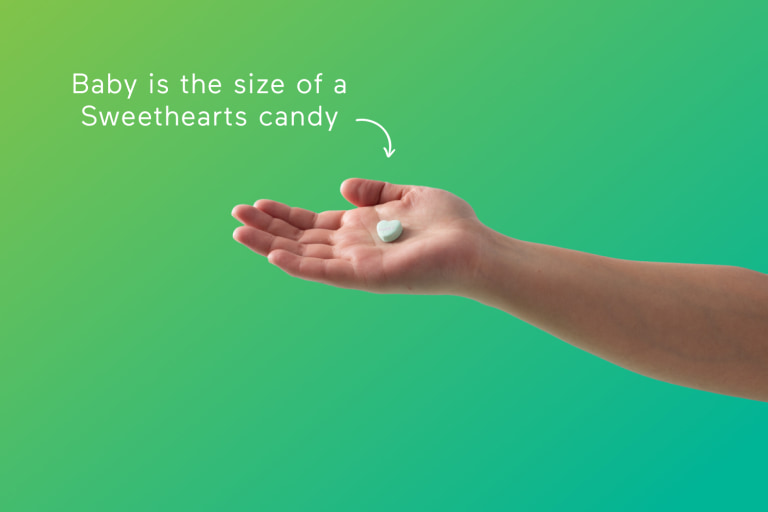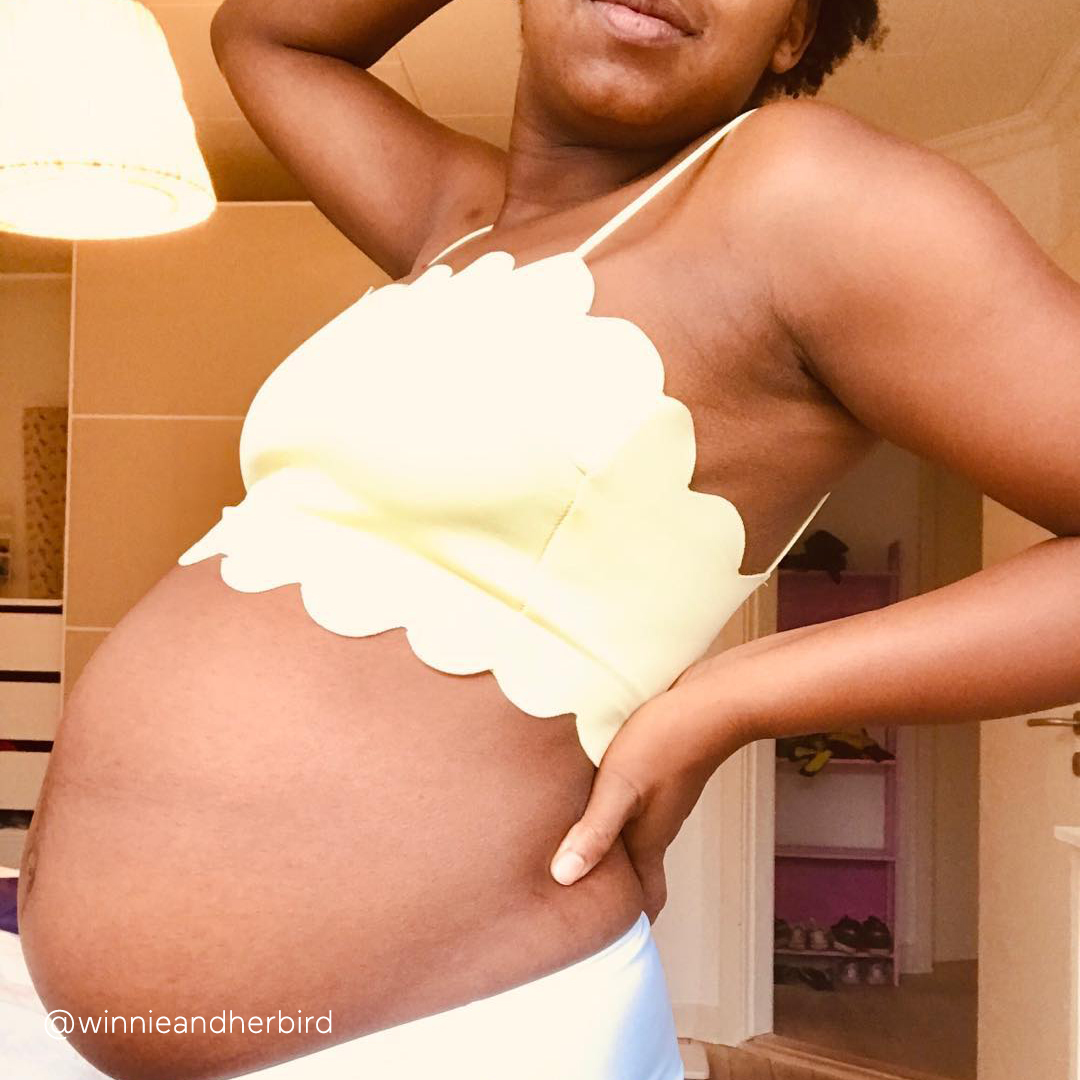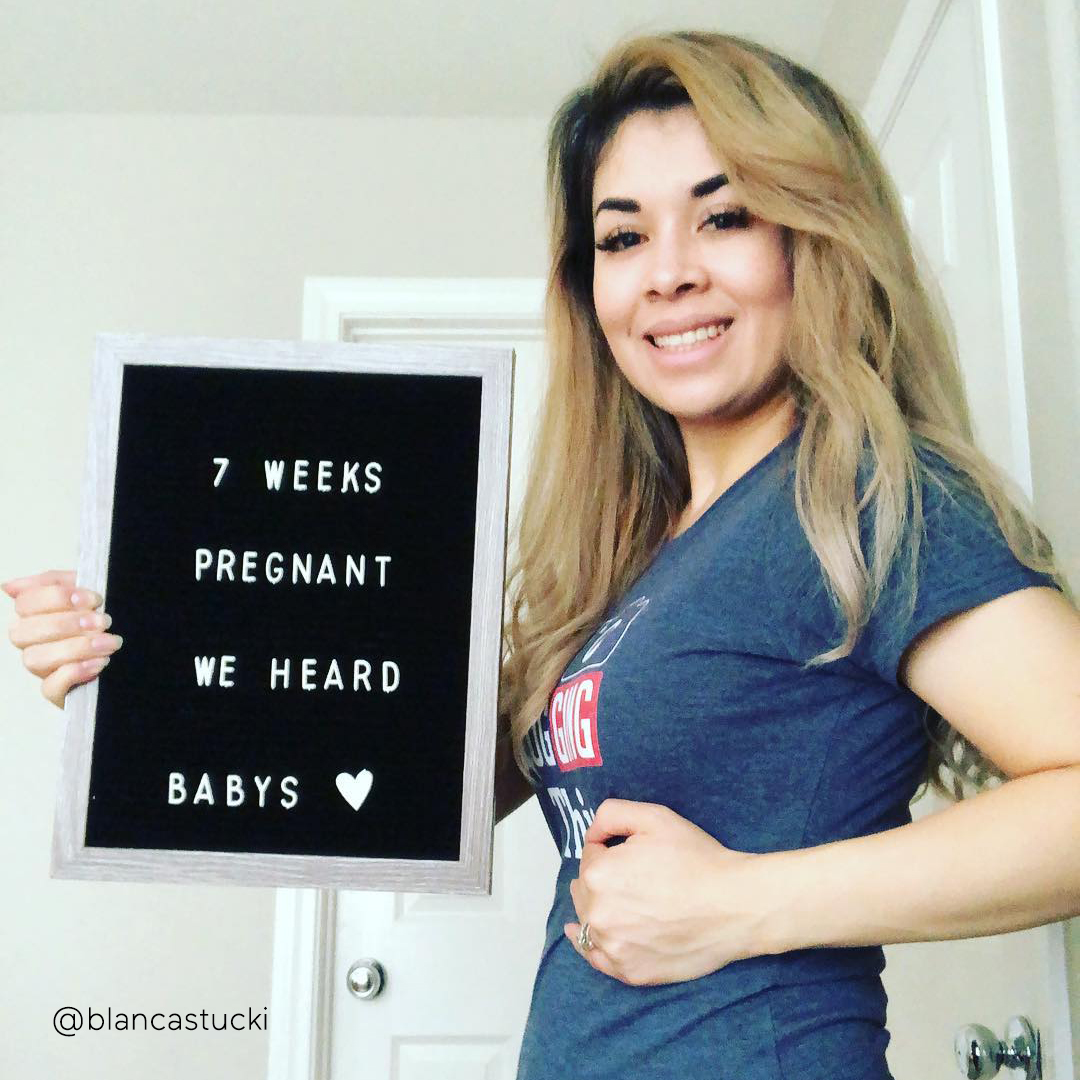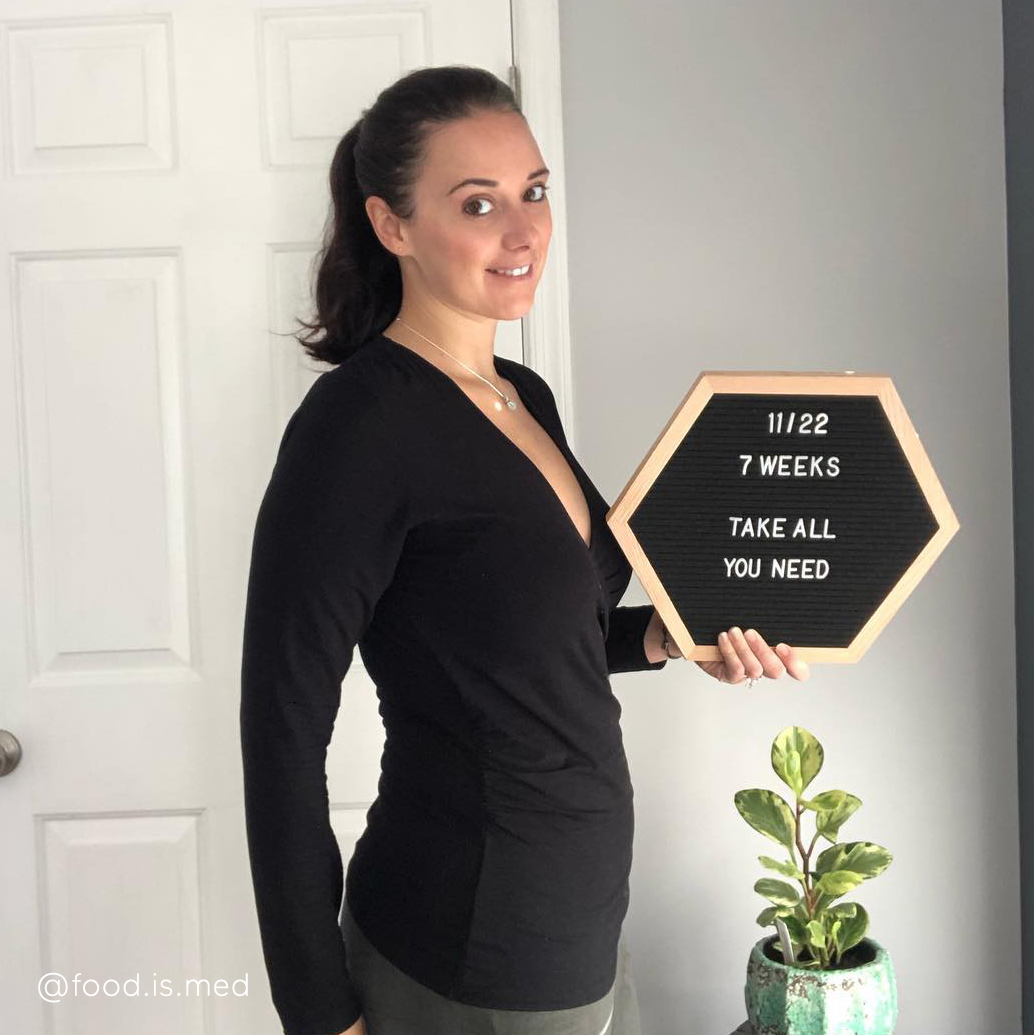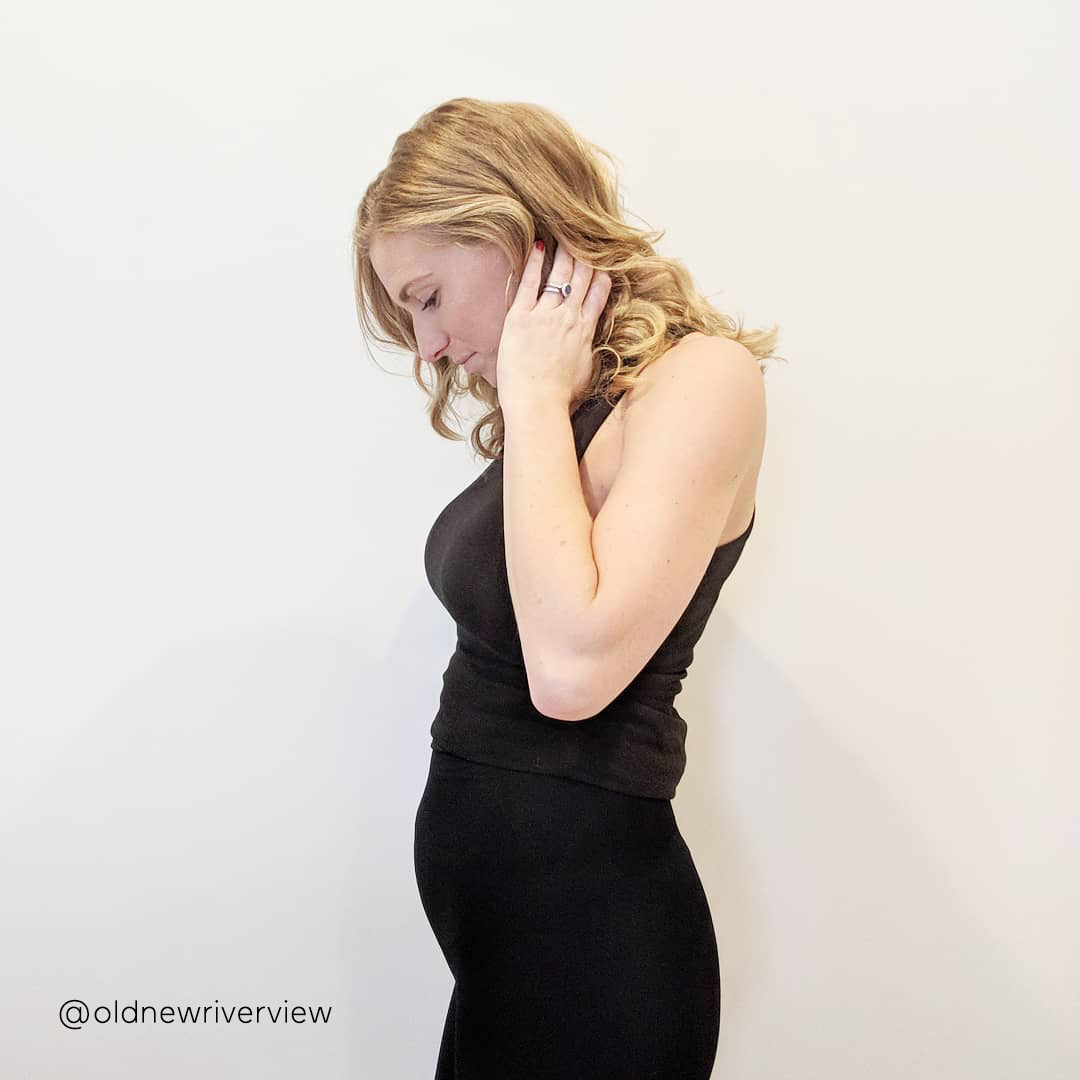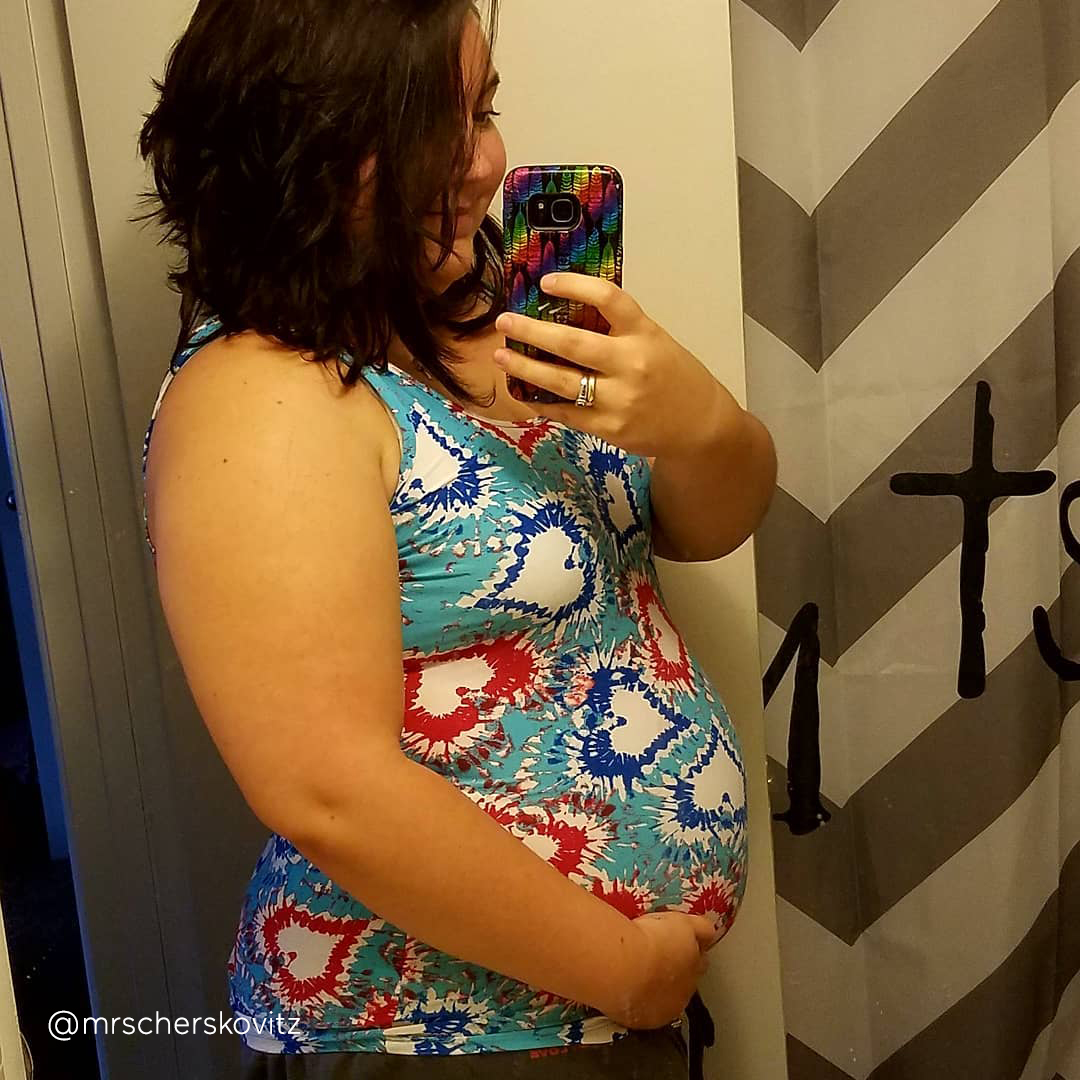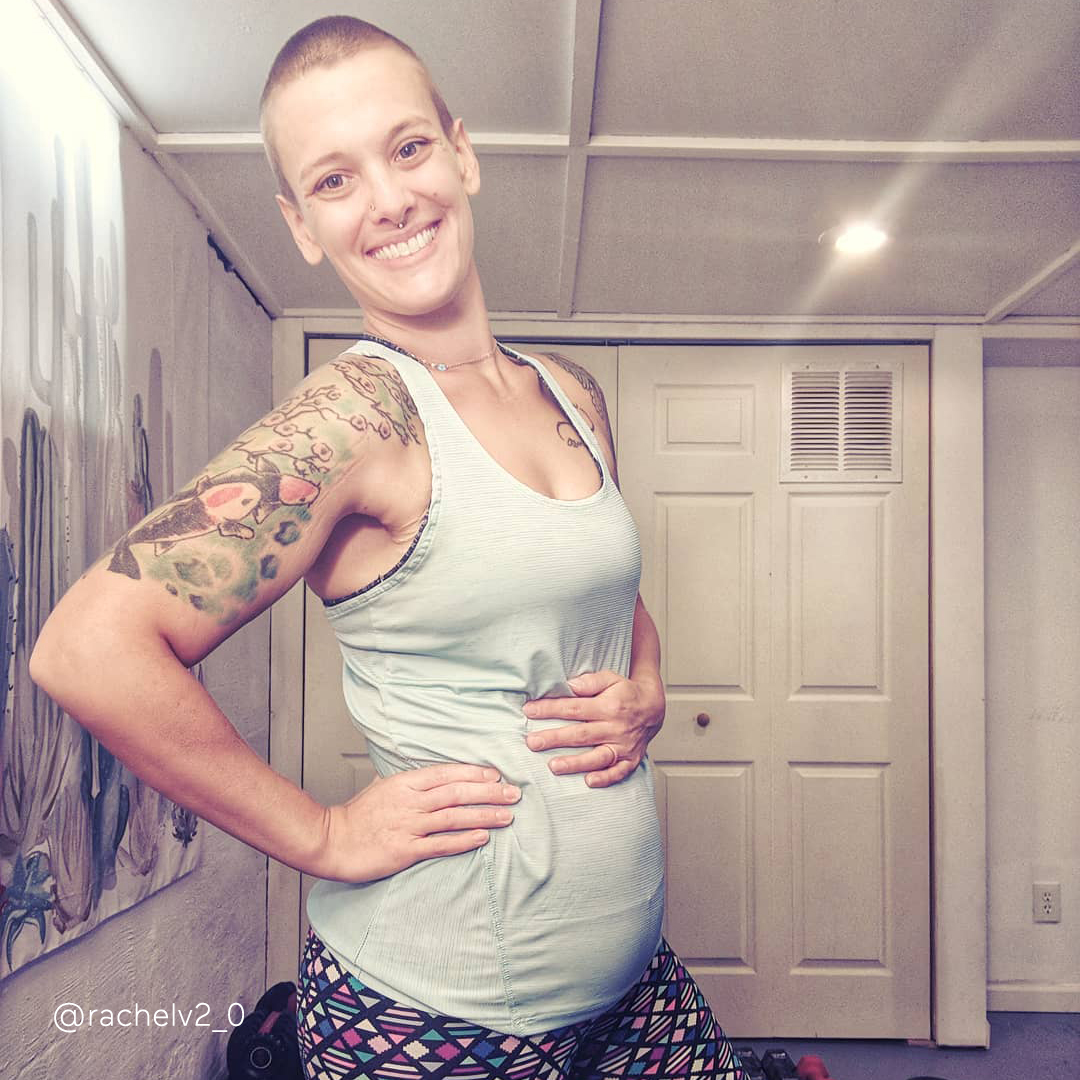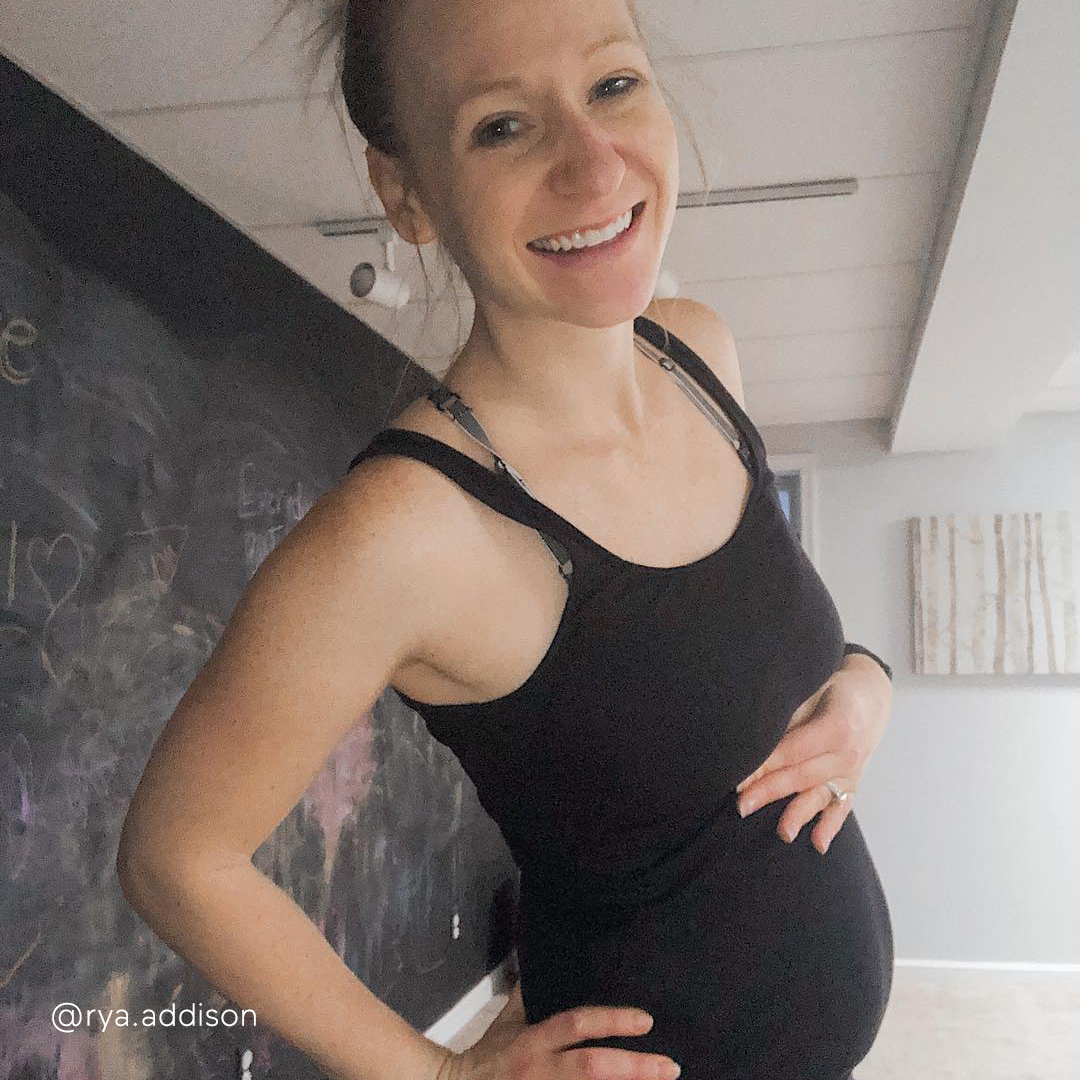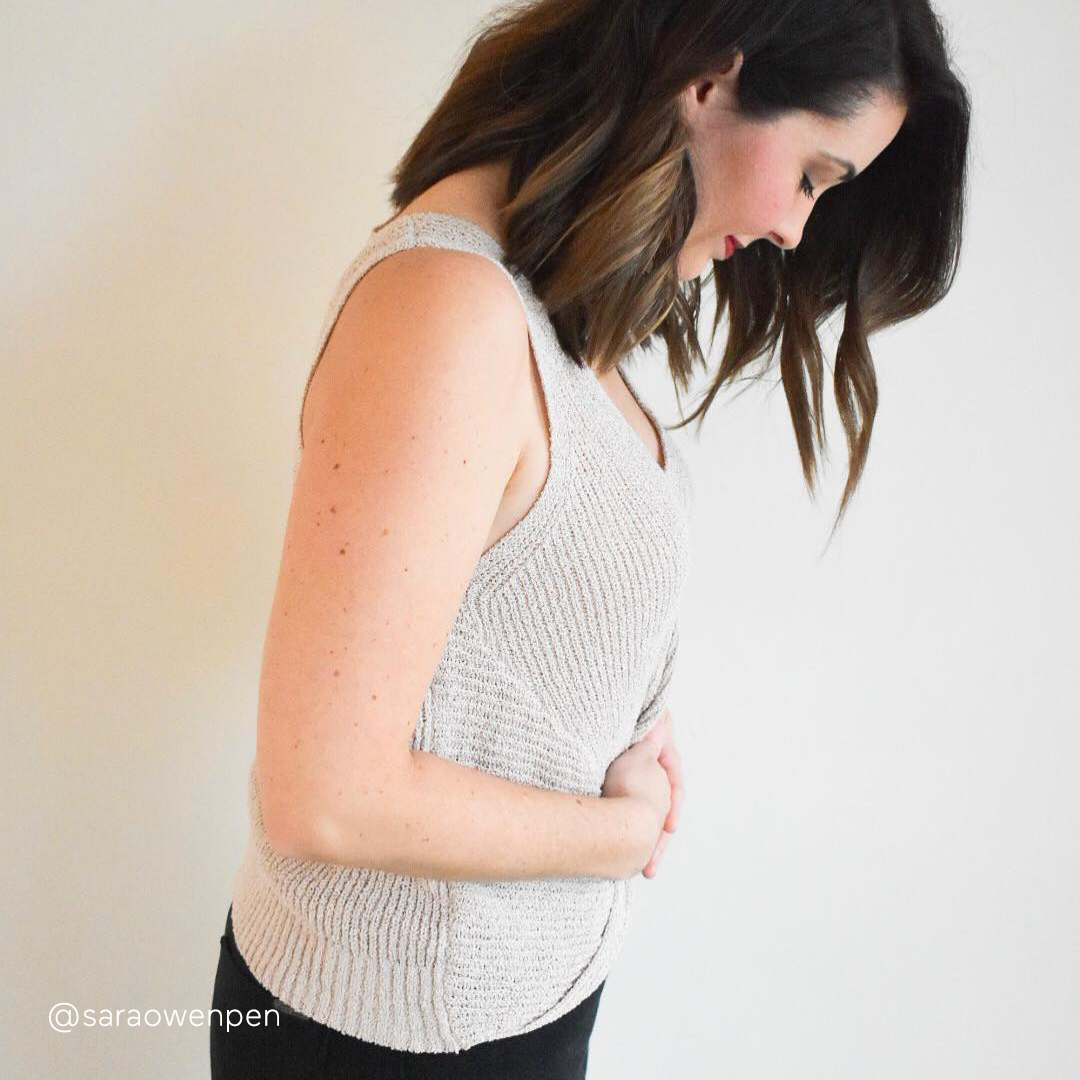7 Weeks Pregnant
At seven weeks pregnant, morning sickness may be kicking in.
By Babylist Staff | Medically Reviewed by Dr. Alyssa Dweck
At 7 weeks, you are still newly pregnant, but that doesn’t mean your pregnancy symptoms haven’t started. Morning sickness is common, even this early in pregnancy. Remember to be kind to yourself as your body starts changing to prepare for your growing little one. Find out more about what’s in store at 7 weeks pregnant.
What To Expect At 7 Weeks Pregnant
How Many Months Is 7 Weeks Pregnant?
7 weeks pregnant in months is two months pregnant (the first two weeks are those prior to conception—here’s more on how pregnancy weeks are counted if you’re confused). This is part of the first trimester. And if you want to figure out when baby is coming, try our due date calculator.
Your Baby at 7 Weeks
You may not have a baby bump, you can’t feel a kick or a jab and you may not have even seen a doctor yet. But you’re probably eager to know what’s going on with your baby.
Baby’s major organs start developing—heart, brain, liver, stomach and kidneys—at 5 weeks, and by 8 weeks, you may be able to see cardiac activity on an ultrasound at your prenatal appointment. Read on for the high points about baby’s development at 7 weeks pregnant.
- Major growth: Your baby is growing really quickly, having almost doubled in size since last week!
- Arm and leg joints: The tiny little embryo has sprouted arms and legs, and is starting to form joints.
- More complex brain: The brain is also going through a growth spurt this week. It already has two hemispheres and is becoming more complex by the minute (growing 100,000 new cells per minute, according to the National Library of Medicine (NLM)).
- Growing digestive system: According to the CDC, the intestines are pushing out of the belly by the umbilical cord. They’ll find their way to their rightful space around week 11.
How Big is Your Baby at 7 Weeks?
Your baby is 0.37 inches long and weighs 0.04 ounces this week. That’s about the size of a Sweethearts candy.
7 Weeks Pregnant Ultrasound
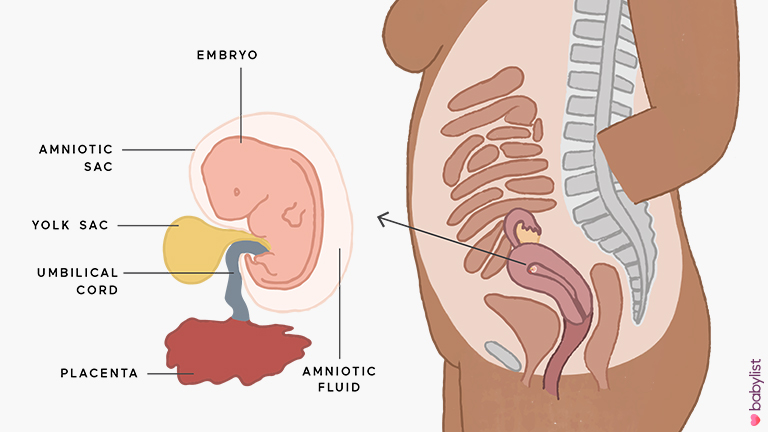
7 Weeks Baby Movement
You won’t feel baby move until around 16 weeks. Don’t worry, there’s plenty of time!
Your Body at 7 Weeks Pregnant
7 Weeks Pregnant Symptoms
Feeling not-so-hot right about now? Know you’re not alone! Pregnancy symptoms tend to kick into high gear around now. Here’s some of what you may be experiencing.
Morning sickness
More than 80% of pregnant people experience some kind of nausea in early pregnancy, and more than half have some vomiting too. This morning sickness usually goes away by the second trimester. And it’s not just morning sickness. It can–and does–strike at any time of day, usually throughout the first trimester. Try to keep your symptoms manageable by eating smaller, more frequent meals, drinking lots of water in small sips throughout the day and avoiding lying down right after eating.
Exhaustion
Fatigue can hit hard in these early weeks of pregnancy, and there’s not much you can do about it. Try to keep your energy up by eating healthfully and often (every few hours), drinking plenty of water and exercising (if you’re up for it). And give yourself permission to sleep in on the weekends and/or take a little nap when you can.
Bloating
The pregnancy hormone progesterone slows down certain functions in the body, including your digestion. Extra digestion time allows for extra gas to build up, making you more likely to get bloated. (It also makes you more likely to pass gas when you don’t exactly want to.) Limiting carbonated drinks, avoiding fatty or fried foods, eating smaller meals (but eating more often), drinking plenty of water, eating slowly and chewing your food well can help prevent excess gas.
Diarrhea
When your hormones change and digestion slows, it can also set off the runs. Or maybe you’re sensitive to changes to your diet—or maybe it’s a stomach bug. The most crucial thing is to stay hydrated if you have diarrhea. So drink lots of water and juice and eat brothy soups. If the diarrhea doesn’t clear up on its own within two days, call your doctor.
Excess saliva
Notice your mouth watering more these days? Excess saliva is a real pregnancy symptom that not everyone gets or notices. Doctors say the extra saliva protects the mouth and throat from irritating stomach acids that can strike during the first trimester. Drinking lots of water, using mouthwash, brushing your teeth often and chewing gum could help tame the drool.
Frequent urination
Your uterus is already expanding and crowding your bladder; that, plus increased blood volume means a more frequent urge to pee. The uterus will get a little higher in the second trimester and hopefully give you a (temporary) break until late pregnancy, when you’ll be very well acquainted with the ladies’ room again.
No symptoms
If, at 7 weeks pregnant, no symptoms are bothering you, you might be wondering what’s up. Not having symptoms doesn’t mean anything is wrong or that your pregnancy isn’t normal. You just might get them a little later than some other moms-to-be, or you may be one of the few who doesn’t have a rough first trimester.
7 Weeks Pregnant Symptoms Not to Ignore
If anything feels off to you, run it by your doctor. Excessive bleeding and one-sided cramps are symptoms you should definitely pay attention to ASAP.
Pregnancy Symptoms Coming Up In Week 8:
At week 8 of pregnancy, expect morning sickness, constipation and light cramping or spotting.
Top Tip for 7 Weeks Pregnant
If you’re having trouble keeping down your prenatal vitamins, try a gummy or a mini-pill.
Real Baby Bumps at 7 Weeks Pregnant
Commonly Asked Questions About 7 Weeks Pregnant
Even though it might not look different, your body is undergoing all sorts of major changes, and some might be affecting you everyday. (Morning sickness, anyone?) You may have some questions about what to do this week.
Should I be staying hydrated?
Yes! Water plays a big role in your baby’s development (think the placenta and the amniotic sac). It can also help alleviate some early pregnancy symptoms, like fatigue, headaches and nausea. Carrying a water bottle with you wherever you go will remind you to stay hydrated. Opt for a cool design, like the Simple Modern Wave or the purifyou, or go big with the 40 oz Hydroflask. For additional motivation, bottles with goal markers, like this one, can be a fun way to help keep you on track all day long.
What are some ways I should be taking care of myself during these early stages?
You’re growing a human, and that’s no easy feat. Reward yourself with a pedicure (while you can still see your toes), a new style at the salon or a luxurious (but gentle) facial. Curious which beauty treatments and products are okay for baby? Here are some tips.
Should I be exercising?
Fatigue and nausea can make exercise feel out of the question. But a little movement really can boost your energy and your mood while stretching weary muscles. If you’re up for it, check out a prenatal yoga class in your area. If that’s too much right now, sink into child’s pose or take a 10-minute stroll around the block.
Should I be Googling every symptom?
Spotting? Cramping? No symptoms at all? In most cases, there’s nothing to worry about, and frantic Google searches may only freak you out. A note-taking app on your phone—or even a mini notepad—are a great place to collect your concerns so you can share with your gyno at your next exam. If the worries won’t go away, go ahead and give your doctor a call. Most will ease your fears over the phone, or tell you when an office visit might be the best course of action.
What to Expect at Your First Prenatal Visit
As you eagerly await your first prenatal doctor visit (usually around 8 weeks), it’s understandable you might be intimidated. “It can sometimes feel overwhelming for parents!” says Dr. Malavika Prabhu, board-certified maternal-fetal medicine specialist. “There is so much to cover.”
- Medical history chat: Your OB or midwife will ask you about your health history, both general health-wise and gynecologically. “We are thinking, is there anything that could increase the risks of complications in the pregnancy or during or after delivery?” says Dr. Prabhu. Take note of what the first day of your last period was, because they’ll ask to help determine how far along you are (and thus your due date). Know which medications or supplements you’re currently taking, so they are aware and can sign off on them (or not). They’ll also ask about diseases that may run in your and your partner’s families, so ask family members in advance if you’re unsure. “This data helps us assess the health of the developing fetus, as we are looking for signs of genetic problems in the fetus, or signs of birth defects, not all of which are identified using commonly used genetic screening tests,” says Dr. Prabhu.
- Physical exam: You’ll get a whole exam with your blood pressure and height and weight checks, and a pelvic exam. Your workup will include a pap smear (if you haven’t had one super recently). Many docs do an ultrasound at this appointment, in which case you might see cardiac activity. (Woo hoo!)
- Urine test: Get ready to pee in a cup because your urine will be tested to confirm your pregnancy. The urine also will be tested for protein, glucose, white blood cells and more—and probably will be at every appointment.
- Blood work: Your blood will be drawn, so your doc knows your blood type and Rh status (super important to prevent complications) and anemia. It may be tested for vitamin D deficiency, certain immunities and more. “There will also be urine tests to evaluate for protein. Gonorrhea and chlamydia are also tested for, either through urine or a vaginal swab. If [you] have health problems uncovered in the health history, other tests may be sent,” says Dr. Prubha.
- Q&A: Your doc will likely give you instructions to help keep you and your baby healthy throughout your pregnancy. “There’s the do’s and don’ts for a healthy pregnancy, like taking prenatal vitamins, not smoking or using any alcohol, avoiding cat litter, etc.,” says Dr. Prabhu. Here’s your chance to voice any concerns and ask all those questions you’ve been wondering about!
Partner Tip
Go with the mom-to-be to the first prenatal visit. There will be a few later appointments that wouldn’t be a biggie to miss. But this one? It’s a big deal.
7 Weeks Pregnant Checklist
- Buy a nice water bottle to keep in your bag or on your desk. Water is the easiest remedy and prevention for many pregnancy symptoms, so make it easy for you to keep drinking throughout the day.
- Keep troubleshooting what works to keep the queasies away. Stock up on ginger or mint tea to calm your belly.
Sources
- Dr. Malavika Prabhu, MD, board-certified maternal-fetal medicine (MFM) specialist and attending physician at Massachusetts General Hospital
- The Development and Shaping of the Brain
- Management of common symptoms of pregnancy
- Facts about Omphalocele
Babylist Staff
Editor
Babylist editors and writers are parents themselves and have years of experience writing and researching, coming from media outlets like Motherly, the SF Chronicle, the New York Times and the Daily Beast, and the fields of early childhood education and publishing. We research and test hundreds of products, survey real Babylist parents and consult reviews in order to recommend the best products and gear for your growing family.

